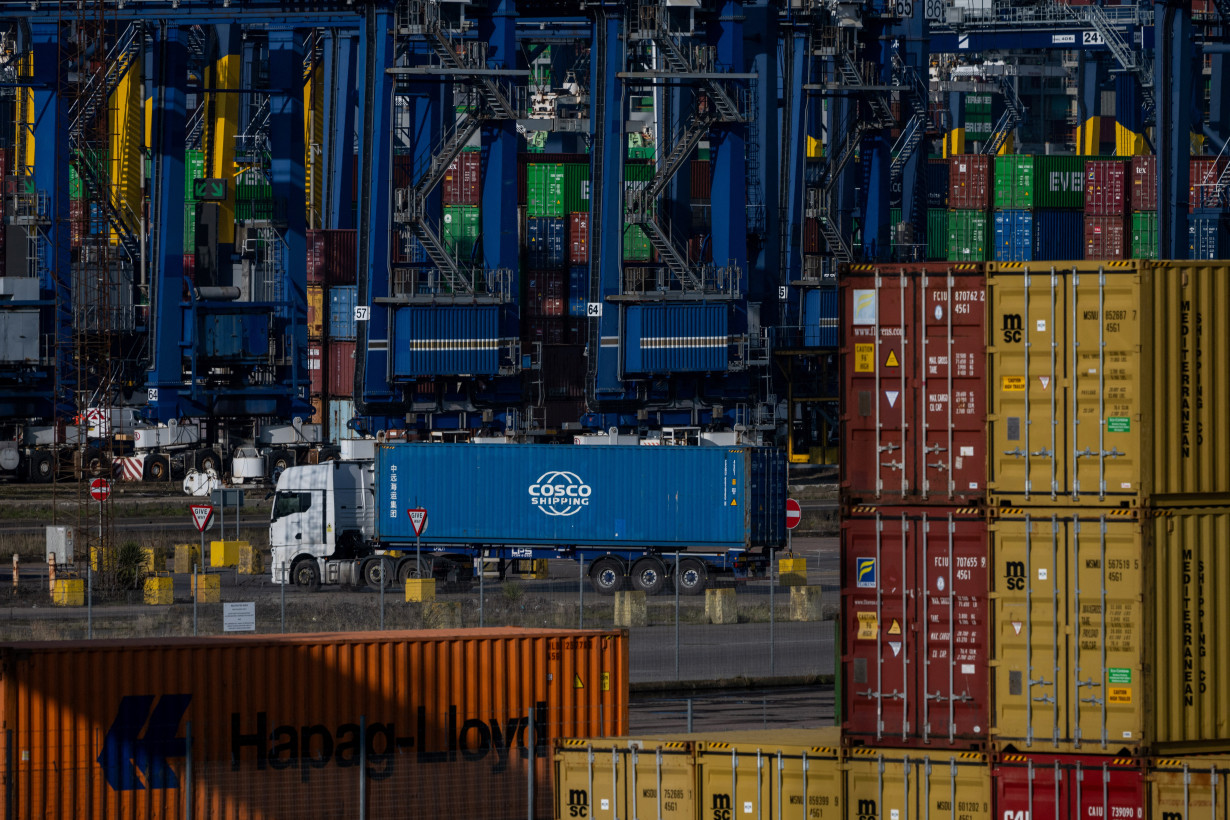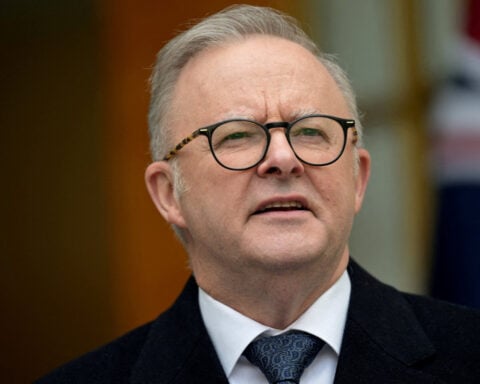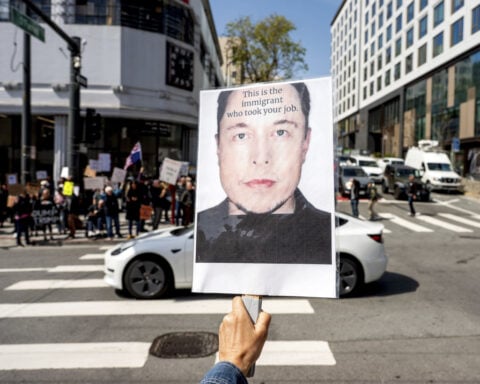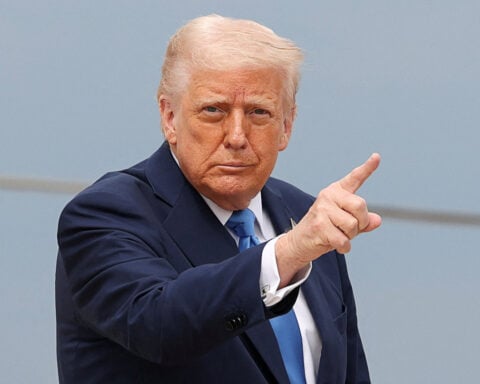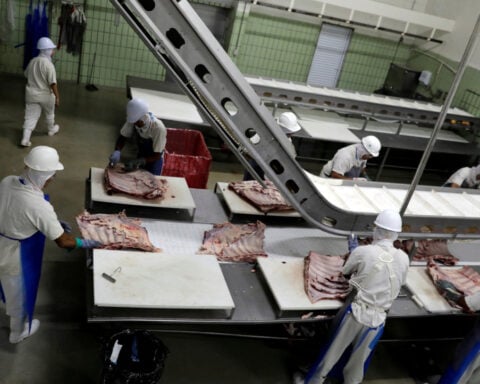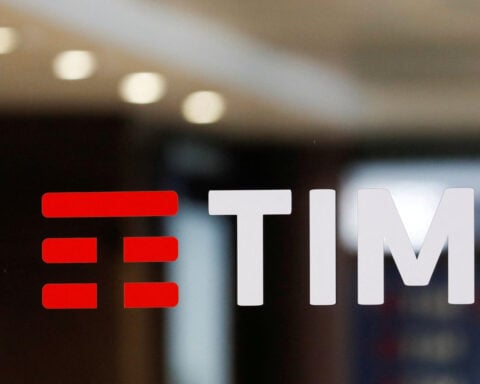By Andrew MacAskill
LONDON (Reuters) - U.S. President Donald Trump's threats to impose new tariff rates next week on countries around the world could cut the size of the British economy by up to 1% and wipe out most of its fiscal buffer, according to the government's fiscal watchdog.
The Office for Budget Responsibility (OBR) said that in a scenario where the United States imposed a reciprocal 20 percentage point increase in tariffs on all trade partners, Britain's economy would be 1% smaller than its central forecast in the peak year of impact in 2026-27.
The OBR said if that happened it would wipe out almost all of the government's fiscal buffer as additional tariff revenue was more than offset by lower receipts from income, corporation, and consumption taxes.
"Higher U.S. tariffs would increase the cost of imported goods," the OBR said in a budget document as the government delivered a half-yearly budget update. "This is likely to decrease demand for UK exports and dampen UK economic activity."
Trump has called the proposed new tariffs a "Liberation Day" for the U.S. economy. The action aims to shrink a $1.2 trillion global goods trade deficit by raising U.S. tariffs to levels charged by other countries and counteracting their non-tariff trade barriers.
The British government, which oversees a relatively trade-intensive economy compared with other G20 countries, is seeking to avoid the reciprocal tariffs by negotiating a new economic deal with the United States.
Prime Minister Keir Starmer spoke to Trump on Sunday and the business minister Jonathan Reynolds visited Washington earlier this month in the hope of securing a deal that would spare Britain the impact of the tariffs.
One option that Britain is considering is softening the impact of its digital services tax on technology companies to help secure a deal, according to a British government official.
Trump has claimed that digital services taxes, and the value added taxes levied by European countries including Britain, are discriminatory against U.S. companies.
In the scenario where the United States imposes reciprocal tariffs on all trade partners, inflation would be 0.6% higher than the central forecast in 2025-26 as the price of British imports of U.S. goods would increase, the OBR said.
The OBR said even in a scenario where the United States imposed tariffs on only China, Canada and Mexico and they retaliated, the size of the British economy could be 0.2% smaller than its central forecast in 2026-27 because of the uncertainty and demand for exports would slow.
Trump's whirlwind tariff offensive since his January inauguration has been marked by threats, reversals and delays, sometimes within hours of imposition deadlines, as his trade team formulates policy.
(Reporting by Andrew MacAskill; Editing by William James, Conor Humphries, Peter Graff)

 Trump has begun another trade war. Here's a timeline of how we got here
Trump has begun another trade war. Here's a timeline of how we got here
 Canada's leader laments lost friendship with US in town that sheltered stranded Americans after 9/11
Canada's leader laments lost friendship with US in town that sheltered stranded Americans after 9/11
 Chinese EV giant BYD's fourth-quarter profit leaps 73%
Chinese EV giant BYD's fourth-quarter profit leaps 73%
 You're an American in another land? Prepare to talk about the why and how of Trump 2.0
You're an American in another land? Prepare to talk about the why and how of Trump 2.0
 Chalk talk: Star power, top teams and No. 5 seeds headline the women's March Madness Sweet 16
Chalk talk: Star power, top teams and No. 5 seeds headline the women's March Madness Sweet 16
 Purdue returns to Sweet 16 with 76-62 win over McNeese in March Madness
Purdue returns to Sweet 16 with 76-62 win over McNeese in March Madness
